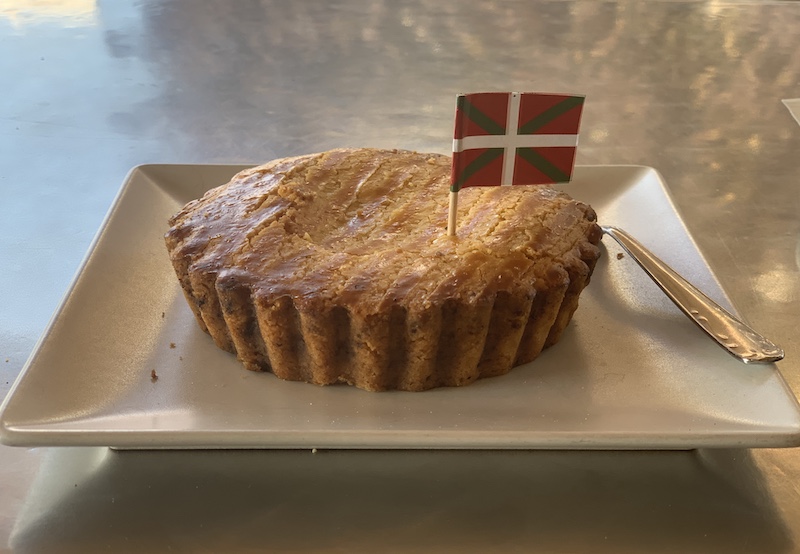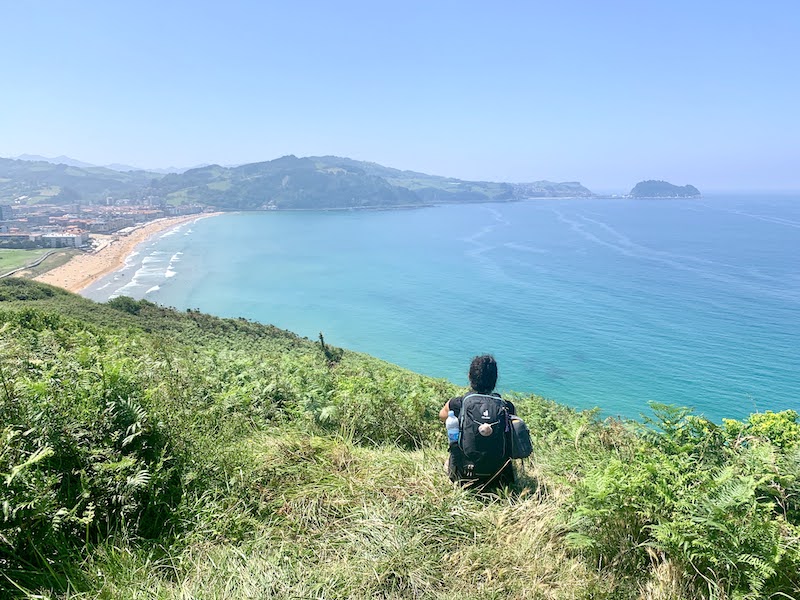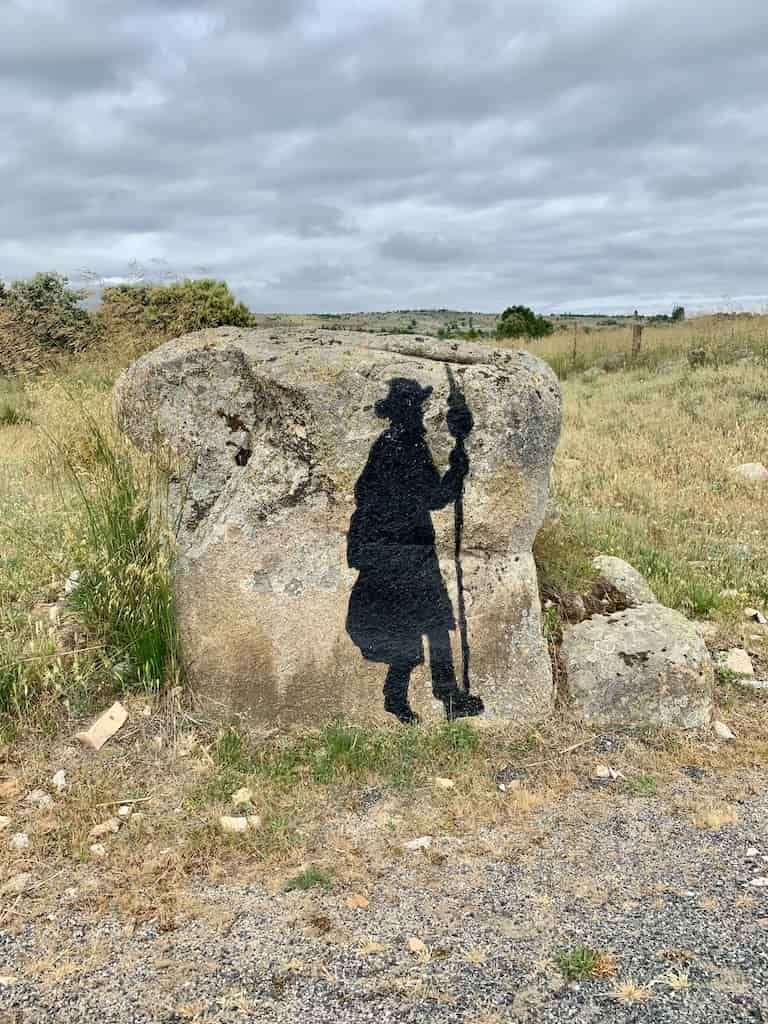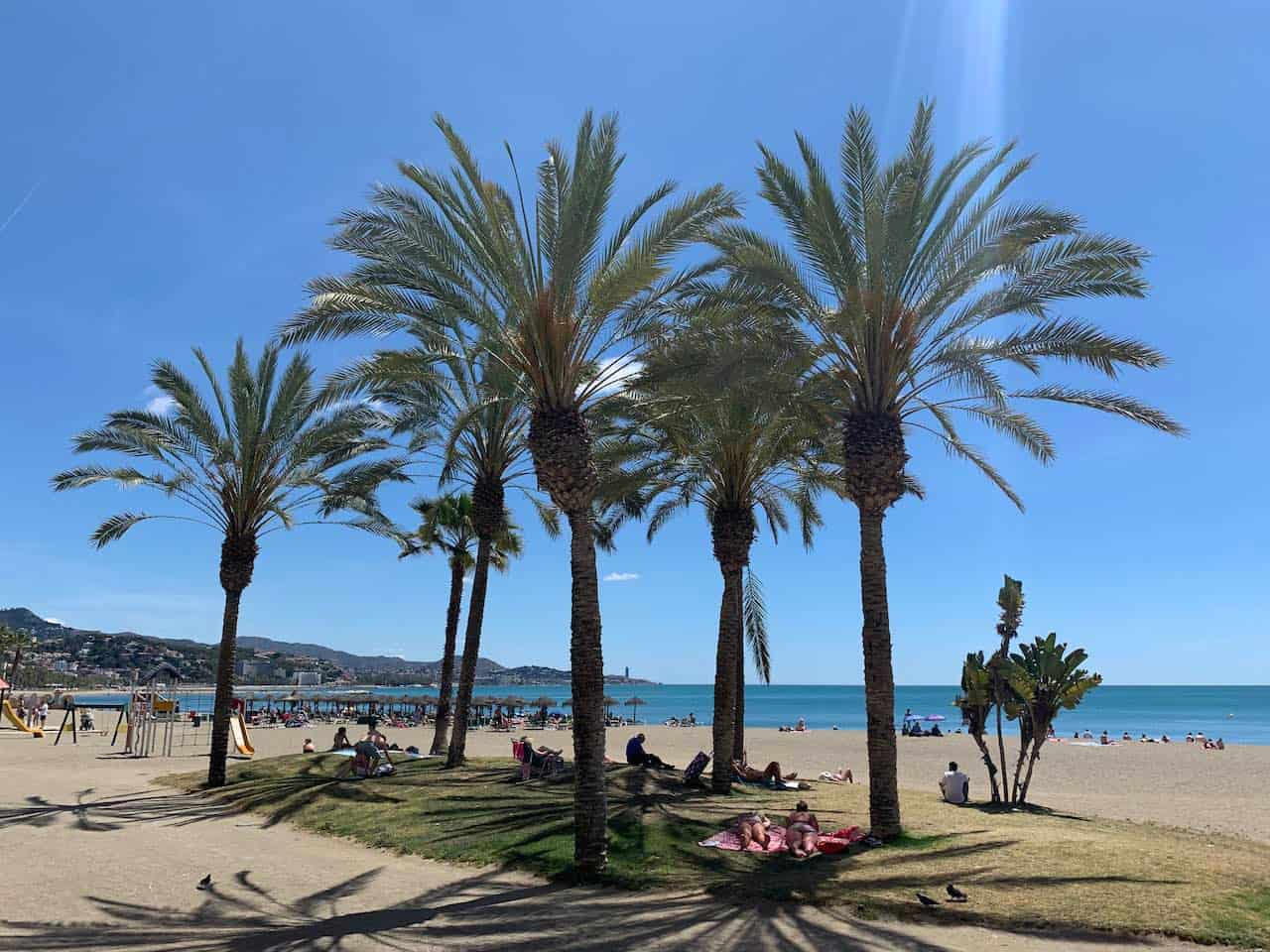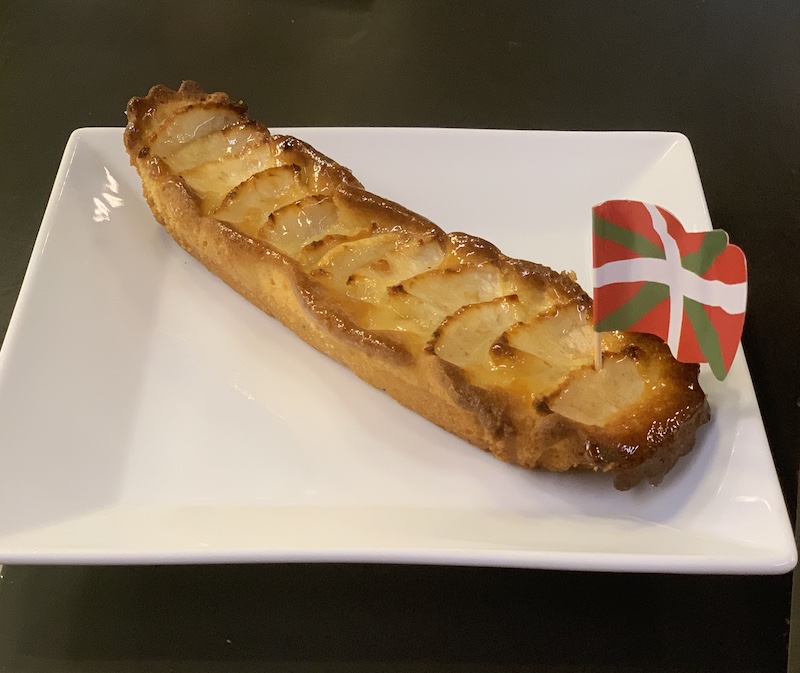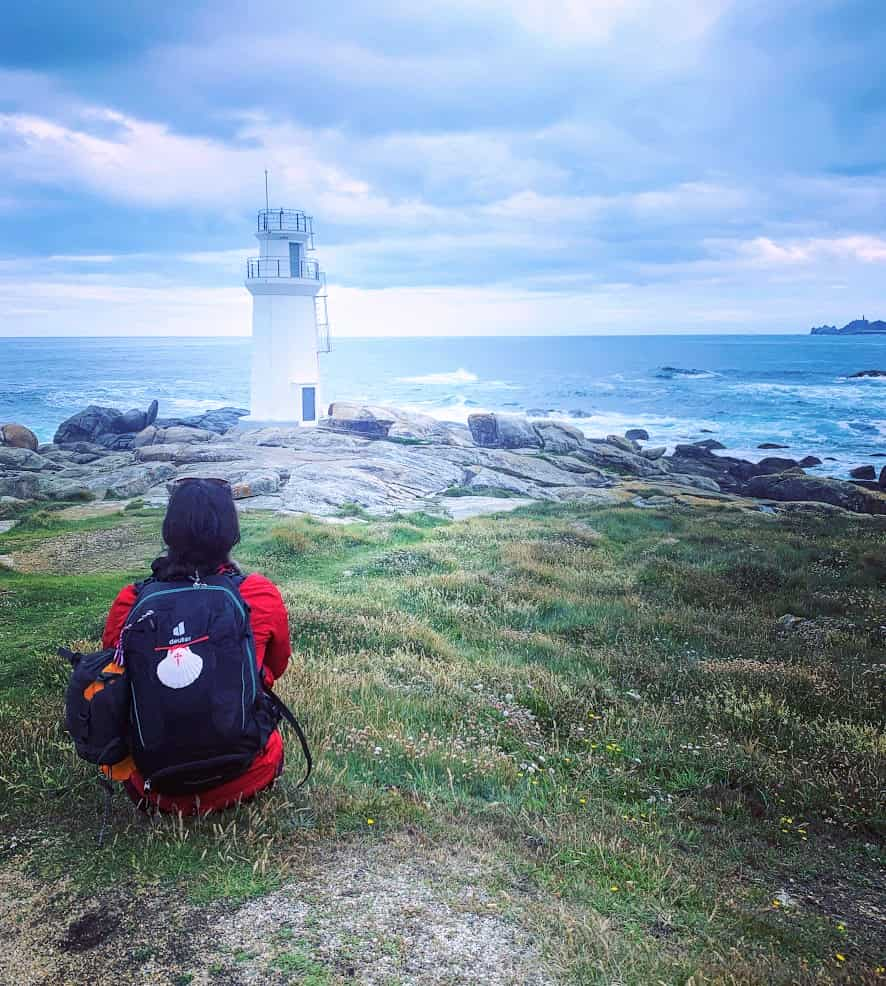Interested in Semana Santa in Spain and celebrating Easter in Spain?
Holy Week in Spain is from April 13-19, 2025.
Read about Easter Week in Spain, Easter festivals in Spain, Spanish Easter traditions, and Easter celebrations in Spain.
Find out where to go for Easter in Spain, how to celebrate Easter in Spain, what to see at Easter in Spain, and what traditional Spanish Easter food to try in Spain
EASTER IN SPAIN
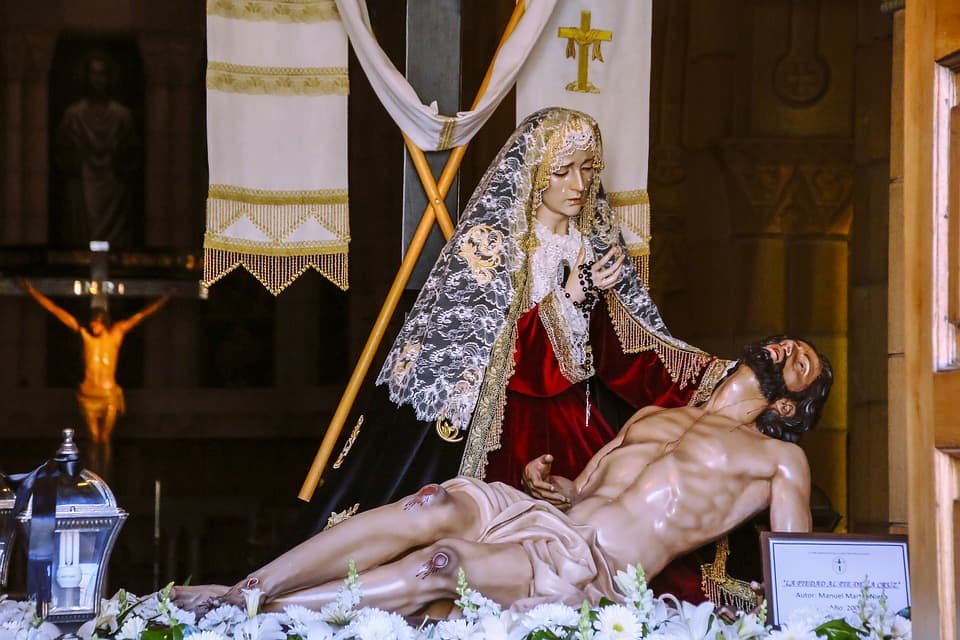
THIS POST MAY CONTAIN COMPENSATED LINKS. PLEASE READ MY DISCLAIMER FOR MORE INFO.
Semana Santa traditions and Easter traditions in Spain
Easter in Spain is one of the most important historical, cultural, social, and religious events.
Easter processions in Spain commemorate the passion, death, and resurrection of Jesus in an unparalleled way. The celebration of Holy Week and Easter in Spain represents a demonstration of religiousness accompanied by superb artistic expression.
This remarkable tradition of celebrating Holy Week and Easter in Spain goes back to the Middle Ages.
Semana Santa in Spain is one of the most spectacular fiestas in Spain. During Semana Santa, striking religious processions go through the main streets of Spanish cities, towns, and villages.
The most dramatic Semana Santa parades in Spain happen on Maundy Thursday (Jueves Santo) and Good Friday (Viernes Santo). The most dramatic Holy Week processions are in Seville and Malaga in southern Spain.
The celebration of Easter in Spain is matchless. Attending Semana Santa processions and witnessing Easter in Spain are must-have experiences in Spain.
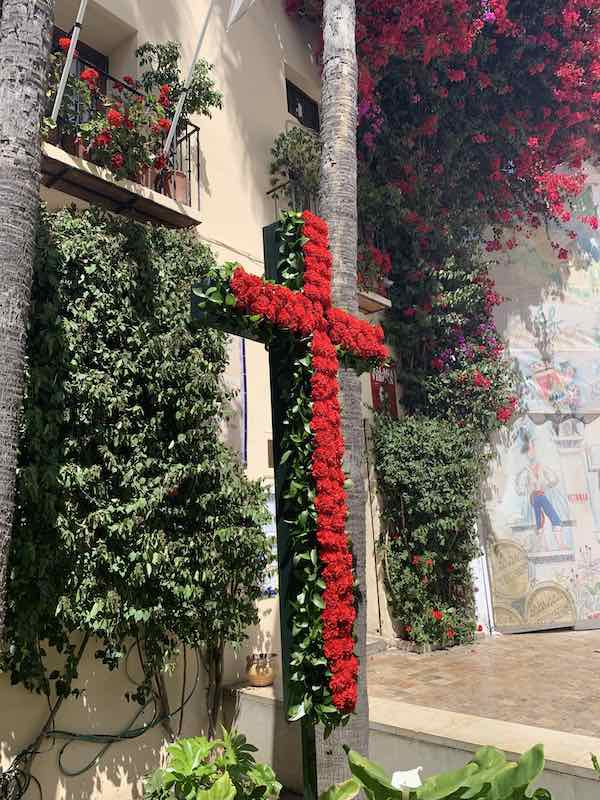
Holy Week in Seville
Holy Week processions in Seville and Malaga are famous events worldwide. People come to Seville and Malaga from all over the world come to Seville to witness spectacular celebrations of the Passion of Christ.
So, if you are thinking of spending a week in Spain, Holy Week in Spain grants bringing home lifelong memories of Spain.
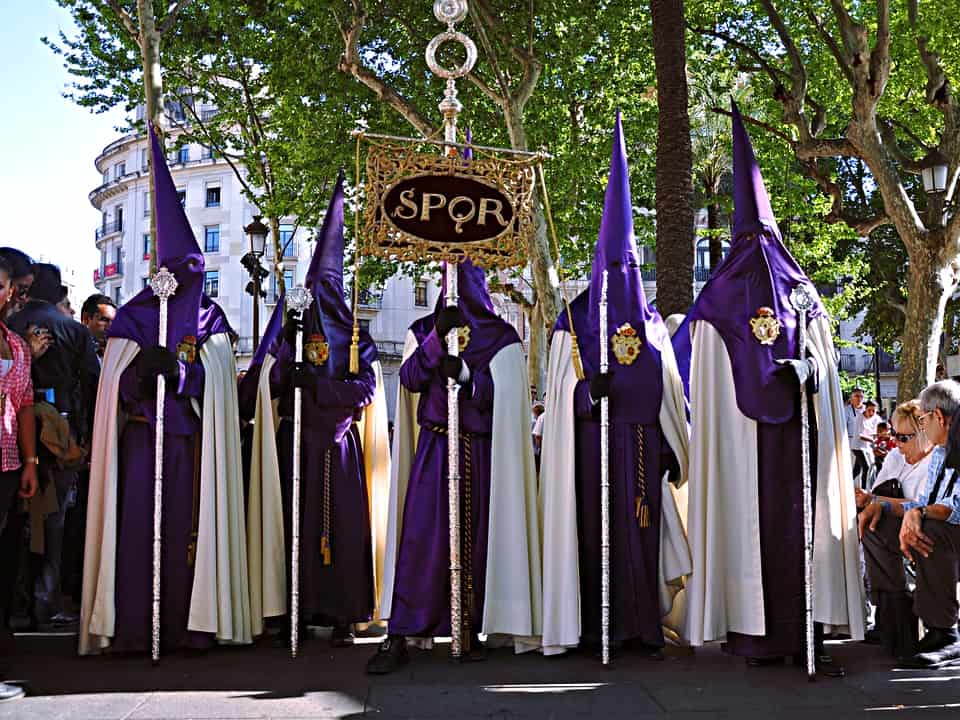
When is Easter celebrated in Spain in 2024?
Holy Week in Spain 2025 is April 13-19, 2025. Easter in Spain in 2025 is on April 20, 2025.
Facts about Easter in Spain
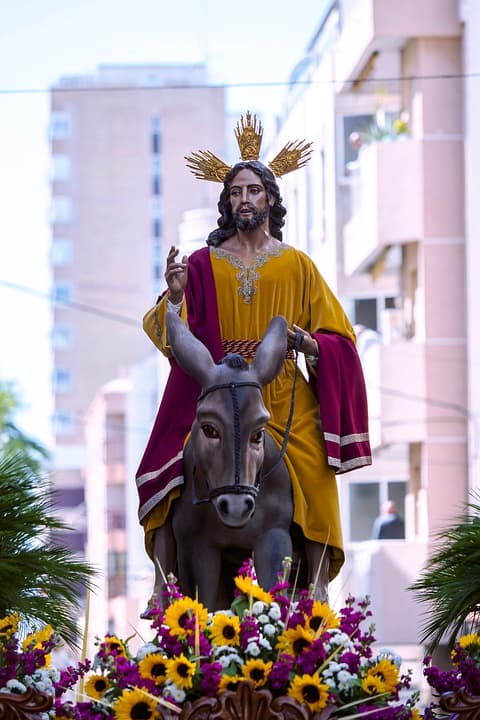
Easter in Spain facts
Spain has been predominately a Catholic country for centuries.
It is a country with a 2,000-year-long tradition of Christianity. Saint James the Greater, one of the Twelve Apostles of Jesus Christ, spread Christianity on the Iberian peninsula in the first years of the new era.
St James the Apostle (or Santiago in Spanish) is the saint patron of Spain. His remains are held in a tomb in the Cathedral in Santiago de Compostela in Galicia Spain.
Santiago de Compostela in Spain is among the most beautiful cities in Spain. Besides that, Santiago de Compostela is one of the most famous Christian pilgrimage sites, along with Jerusalem and Rome. Camino de Santiago in Spain (The Way of St. James) is one of the world’s most famous pilgrimage routes.
I hiked a few Caminos in Spain. You can read more about hiking Camino de Santiago Camino del Norte, Camino del Santiago a Finisterre, Camino de Santiago Via de la Plata, Camino de Santiago Sanabres, and my ultimate packing list for Camino de Santiago in Spain.
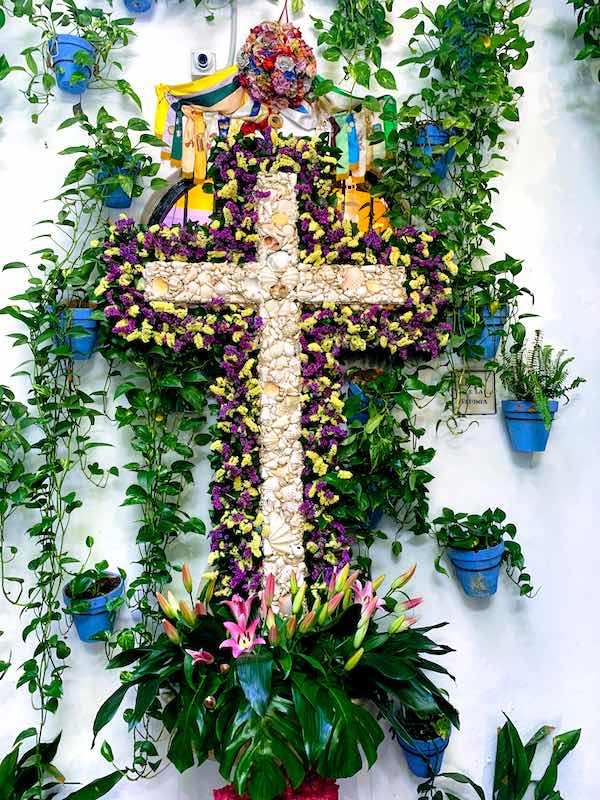
Easter is the most significant event in Christianity. Holy Week is the most sacred week for Christians. Easter in Spain is one of the most important holidays, in line with its Christian tradition.
Easter in Spain is called Pascua.
The celebration of Easter in Spain starts with Holy Week. Holy Week in Spain is called Semana Santa. Holy Week is the week that precedes Easter and the last week of Lent.
Semana Santa starts with Palm Sunday, called Domingo de Ramos in Spain. Palm Sunday commemorates the day when Jesus arrived in Jerusalem. Semana Santa ends with Easter Sunday or Lunes de Pascua in Spanish. Easter Sunday is the day of the resurrection of Jesus.
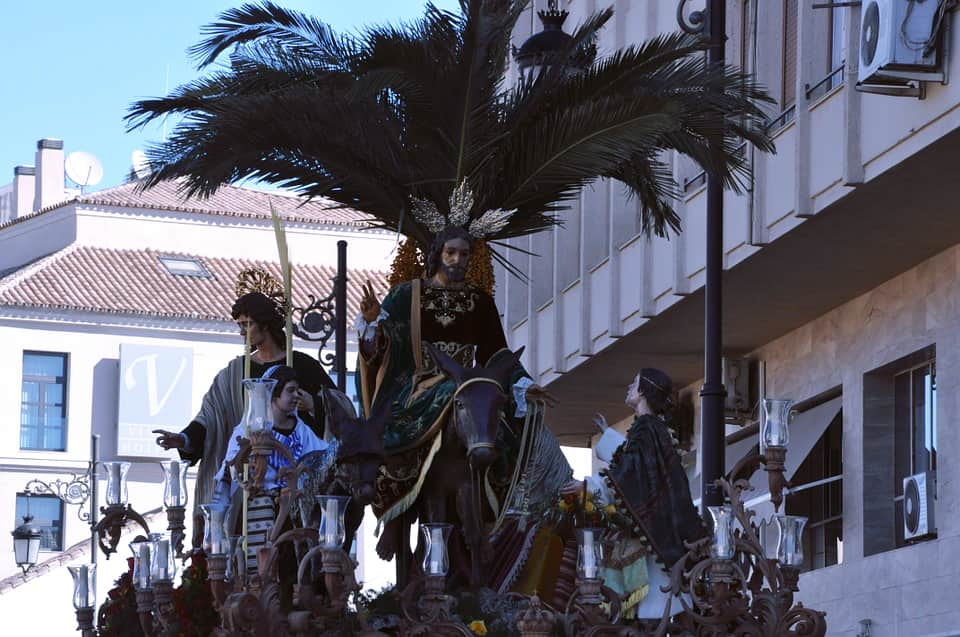
Where to celebrate Easter in Spain
Holy Week and Easter in Spain are celebrated throughout the country.
Easter festivals in Spain are held from the regions of Andalusia and Murcia in southern Spain across Castile and Leon to the regions of Galicia, Asturias, and the Basque Country in northern Spain.
Holy Week celebrations in Spain are some of the most graceful and dignified events in Spain. While the celebrations in Andalucia tend to be more glamorous, the celebrations in Castile and Leon are more solemn.
The most glamorous celebrations of Holy Week and Easter in Spain are in Andalucia, in southern Spain. The most famous Holy Week processions in Andalusia happen in Seville, Malaga, Granada, Cordoba, Jerez de la Frontera, Cadiz, and Almeria. However, Seville, Malaga, and Granada are known for the most elaborate and extravagant Holy Week celebrations in Andalucia.
Holy Week in Seville
Seville, the capital of Andalucia, arguably holds the most spectacular Holy Week celebration in Spain.
About 70 brotherhoods make religious processions in the streets of Seville from their churches and chapels to the Cathedral. The hoodied penitents carry large floats with statues of Jesus and the Virgin Mary to commemorate the Passion and Death of Jesus Christ. The procession statues are considered artistic masterpieces.
The processions go from Palm Sunday to Easter Sunday, but the most remarkable parade goes on the night of Maundy Thursday to Good Friday, and it is popularly called La Madrugá.
Witnessing La Madrugá in Seville is one of the most memorable experiences. Book your stay in Seville and witness the spectacular Semana Santa in Seville! Seville and Andalucia are a top destination for a road trip. You can read more about a perfect Andalucia road trip.
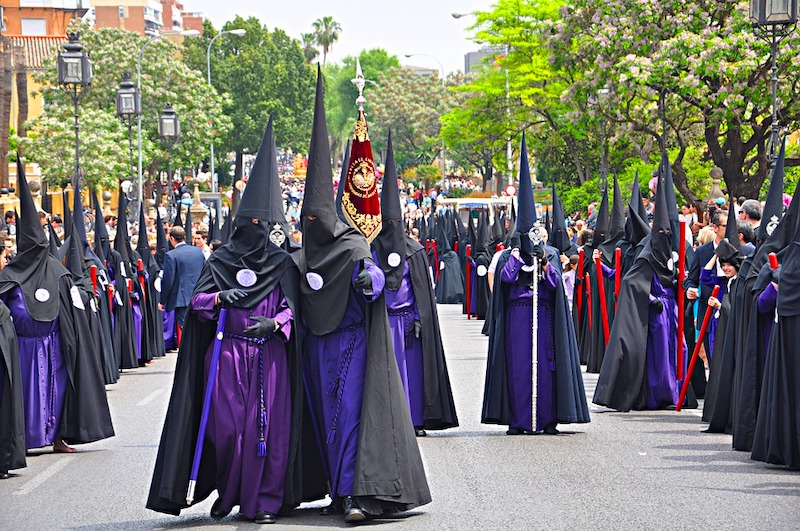
Are you planning a trip to Seville last minute?
If you are traveling to Seville last minute, I prepared for you a short summary of the best tours in Seville, the best hotels in Seville, and more!
BEST EXPERIENCES AND TOURS IN SEVILLE:
Seville Cathedral and Giralda: Skip-the-Line Ticket (the top-selling Skip-the-Line ticket)
Seville: Royal Alcazar, Cathedral, and Giralda Guided Tour (the most popular guided tour)
Seville: Casa de la Memoria Flamenco Show (ticket for the most popular flamenco show)
Seville: Authentic and Romantic Horse-Drawn Carriage Ride (a popular tour)
Seville: Tapas Crawl (for foodies)
BEST HOTELS IN SEVILLE:
Hotel Casa Del Poeta (luxury)
Puerta Catedral Indias Lofts (mid-range)
For You Hostel Sevilla (budget)
What to pack for your trip to Spain? Read about Must-Have Travel Accessories
Holy Week in Malaga
The Holy Week in Malaga is a captivating event.
More than 250 members of the Nuestra Señora de la Esperanza brotherhood carry enormous floats during the Passion Week processions in Malaga. On Maundy Thursday, the military Spanish Legion follows the parade.
Book your stay in Malaga and witness the marvelous Semana Santa in Malaga!
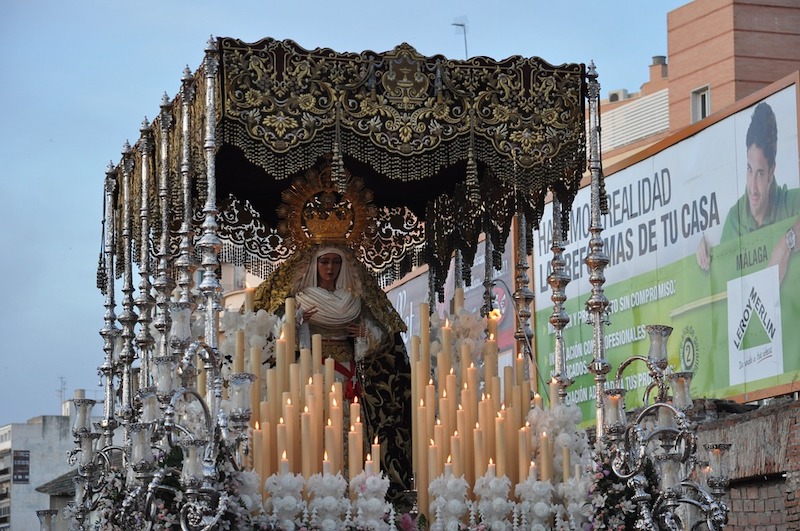
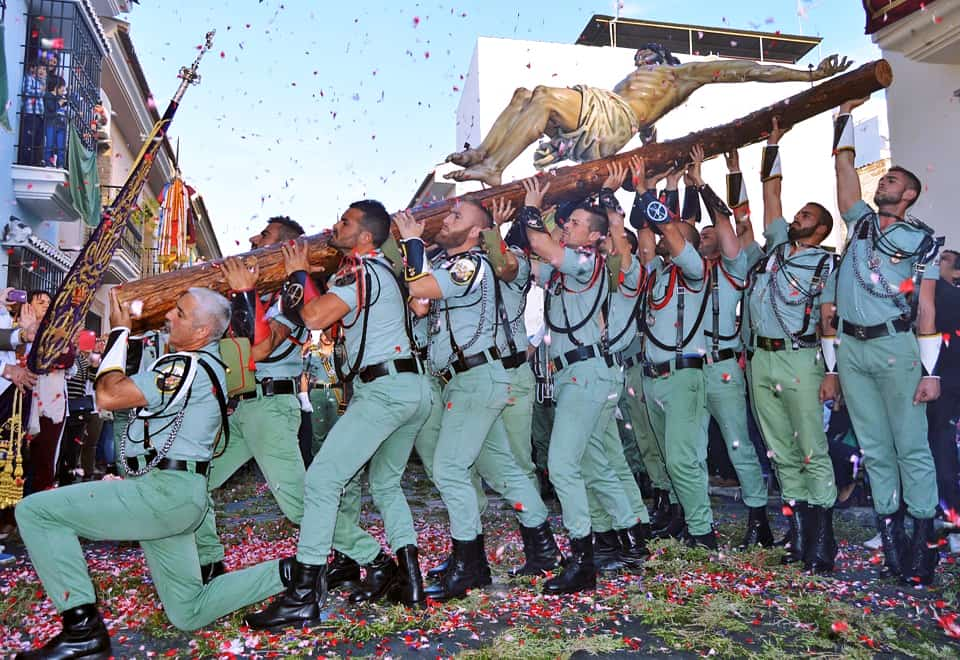
Are you planning a trip to Malaga last minute?
If you are traveling to Malaga last minute, I prepared for you a short summary of the best tours in Malaga, the best hotels in Malaga, and more!
BEST EXPERIENCES AND TOURS IN MALAGA:
Malaga: Sunset Sailing Catamaran Trip with Glass of Cava( the most popular tour in Malaga, especially loved by couples)
Málaga: Alcazaba and Roman Theatre Guided Tour With Entry (a top-selling tour in Malaga)
Málaga: Flamenco Show at Tablao Alegría (a top seller show in Malaga, loved by solo travelers and families with kids)
Málaga: Evening Wine and Tapas Tour (the most popular tour in Malaga for foodies)
From Málaga: Caminito del Rey Guided Tour with Bus (the most popular day trip from Malaga)
From Costa del Sol or Malaga: Granada and Alhambra Tour ( a top day trip from Malaga)
BEST HOTELS IN MALAGA:
Gran Hotel Miramar (luxury)
Hotel Eurostars Málaga (mid-range)
Alcazaba Premium Hotel(budget)
Some of the most solemn celebrations of Holy Week in Spain are in the Castile and León region. The most notable Holy Week processions happen in Segovia, Avila, Salamanca, Valladolid, León, and Zamora.
Holy Week in Salamanca
Salamanca holds one of the oldest Holy Week processions in Spain. It dates back to the 13th century. 10.000 penitents from the 18 brotherhoods make 24 processions from Good Friday to Easter Sunday. Stunning Salamanca is one of the most beautiful cities in Spain and a famous university city in Spain. Salamanca University is the second oldest university in Europe (after Bologna in Italy) and the oldest university in Spain. One of the most notable Holy Week processions in Salamanca is the procession of students of Salamanca University.
Book your stay in Salamanca and see the incredible Semana Santa in Salamanca!
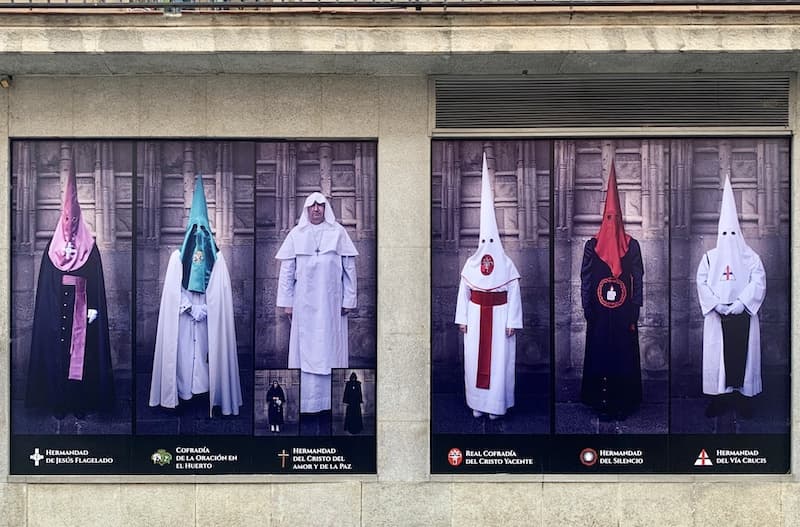
Are you planning a trip to Salamanca last minute?
If you are traveling to Salamanca last minute, I prepared for you a summary of the best tours in Salamanca, the best hotels in Salamanca, and more!
BEST EXPERIENCES AND TOURS IN SALAMANCA:
Madrid: Tour of Avila & Salamanca (the most popular day tour from Madrid)
Salamanca: Private Tour with a Local (the most popular guided tour)
BEST HOTELS IN SALAMANCA:
Hospes Palacio de San Esteban (luxury)
Soho Boutique Salamanca (mid-range)
Hotel Reyes Catolicos (budget)
The most famous Holy Week processions in Murcia are in the towns of Cartagena and Lorca.
Holy Week in Lorca
Holy Week processions in Lorca feature horses, chariots, penitents dressed in white-blue robes, and floats with Baroque statues portraying the scenes of the Old Testament.
Book your stay in Lorca and witness Semana Santa in Lorca!
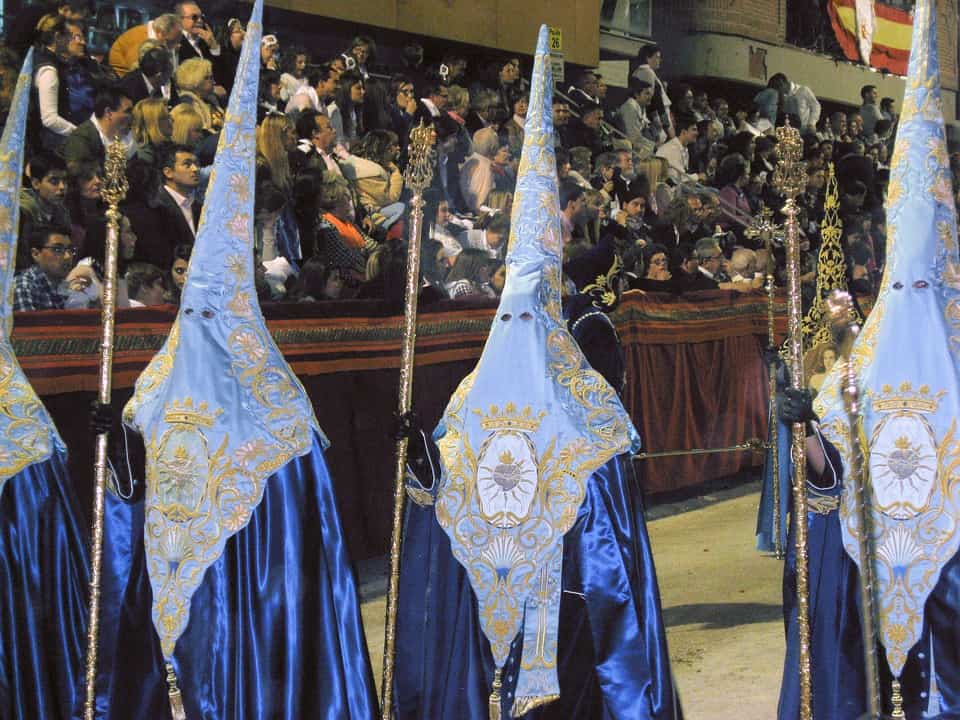
Summary of the Best Places to Celebrate Easter in Spain
Places in Spain with the most magnificent Semana Santa processions and parades:
- Andalucia: Seville, Malaga, Granada, Cordoba, Jerez de la Frontera, Cadiz, Almeria
- Aragon: Zaragoza
- Castile and Leon: Avila, Salamanca, Segovia, Leon, Valladolid and Zamora
- Castile-La Mancha: Toledo
- Galicia: Viveiro, Ferrol
- Murcia: Cartagena, Lorca
What to see for Holy Week and Easter in Spain
Easter parades in Spain include tronos (pasos), costaleros, and Nazarenos.
- tronos also called pasos – the large ornate floats (thrones) with the scene of Jesus’ Passion and statues of Jesus, the sorrowful Virgin Mary, and saints carried by various church members organized in brotherhoods, called cofradías or fraternities, called hermanos. Members of different brotherhoods wear different silk robes.
- costaleros – men under the floats who carry them on their shoulders and necks. There are between 24 and 54 costaleros under each float, depending on the size of the float. They are under floats, so floats seem to move by themselves in a unique ‘floating’ way.
- Nazarenos – are penitential participants who wear distinctive robes. The robes include a tunic, a hood covering the face, and a cloak. Nazarenos usually go barefoot and carry candles and wooden crosses in processions.
- capirotes – the pointed hoods of Nazarenos with eye holes. Only members of Catholic brotherhoods wear them during the processions.
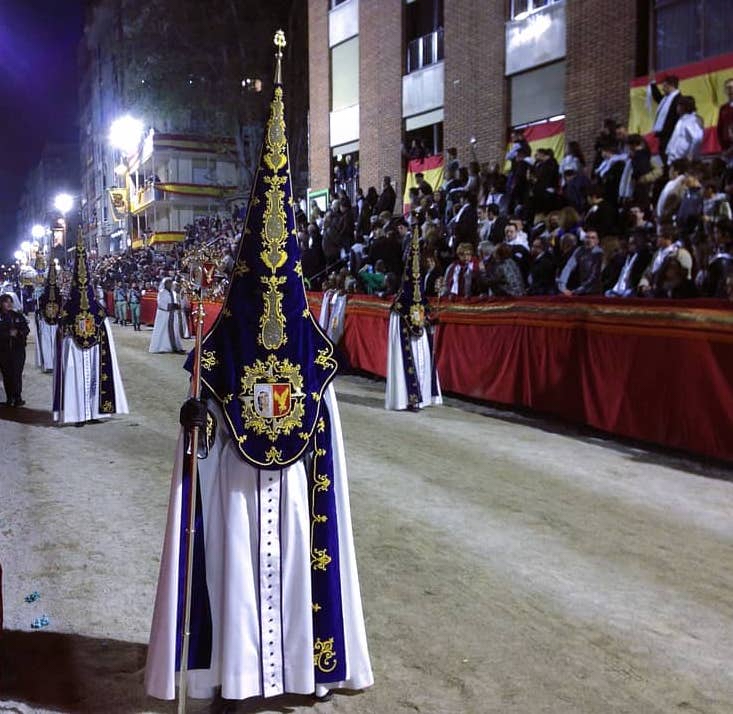
- saetas – typical mournful Andalusian flamenco-style religious music that follows the Holy Week processions in Andalusia
- mantillas – mourning women dressed in black with mantillas (lace veils) who usually carry candles and rosaries in the processions
- La Madrugá in Seville – is the most intense night of the Holy Week. It is the night of Maundy Thursday to Good Friday. Madrugá means dawn as the procession lasts until sunrise of Good Friday. La Madrugá in Seville is famous as the most spectacular Holy Week procession in Spain.
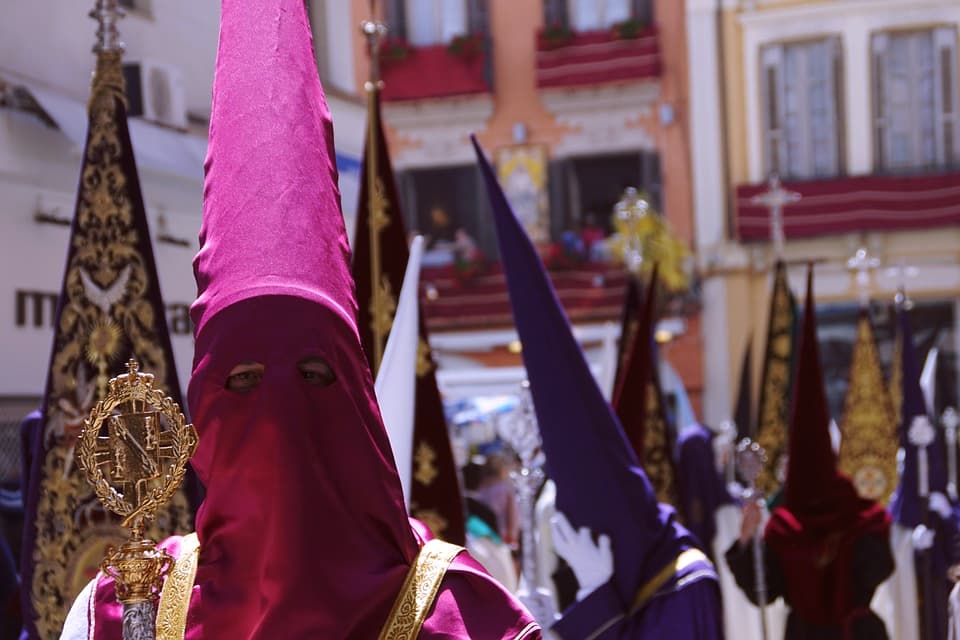
What to eat for Easter in Spain
Easter in Spain food
Easter is the day of the commemoration of the resurrection of Jesus, the Son of God.
Easter is the most important Christian holiday. The resurrection of Jesus means the victory of life over death for Christians. Easter is the celebration of hope in eternal life for believers.
Therefore, Easter is a holiday of joy and happiness shared among families and friends, in private circles, and in public.
Spaniards celebrate Easter (Domingo de Resurrección) with great food, especially delicious cakes, and sweets.
Traditional Easter food in Spain
Some of the traditional Spanish food eaten during Holy Week and Easter in Spain are:
1. Torrijas al vino
Torrijas are traditional Spanish-style French toast. Torrijas are slices of bread traditionally soaked in wine (not milk) and eggs and fried in olive oil. Torrijas dipped in wine are called torrijas al vino
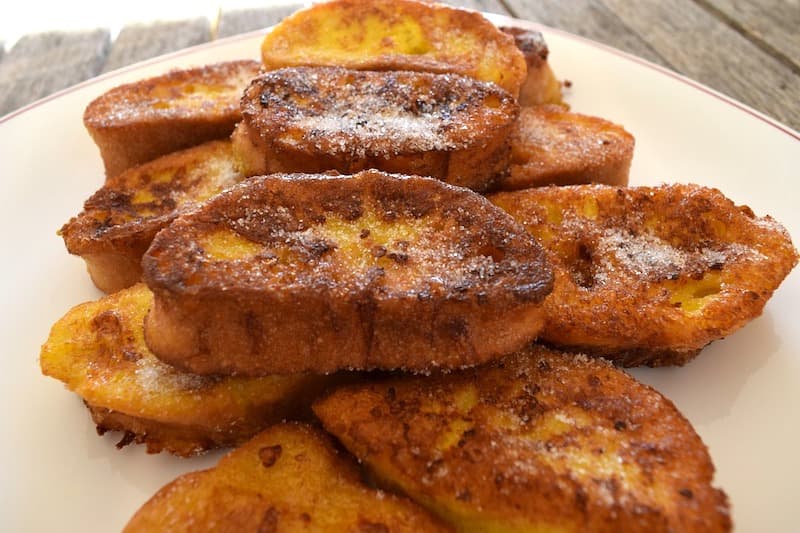
2. Bueñuelos
Bueñuelos are balls-shaped small doughnuts traditionally eaten during Semana Santa in Spain.
These delicious fried dough balls, often dusted with sugar or drizzled with syrup, are a true symbol of celebration and joy. Whether enjoyed with a hot cup of chocolate or shared with loved ones, buñuelos bring warmth and sweetness to the festive atmosphere. It’s more than just food; it’s a taste of tradition, a bite of happiness that fills the air with a sense of togetherness during Holy Week and Easter in Spain.

3. Pestiños
Pestiños are honey-glazed fritters fried in olive oil. Pestiños are traditional Spanish desserts prepared during Holy Week in Andalusia.
These golden, honey-soaked pastries are made by frying dough into delicate, crispy shapes, then drenching them in syrup or dusting them with sugar. With every bite, you’re not just tasting a dessert—you’re savoring centuries of culture and festive spirit. Perfect for sharing with family and friends, pestiños make any Easter gathering in Spain feel extra special.
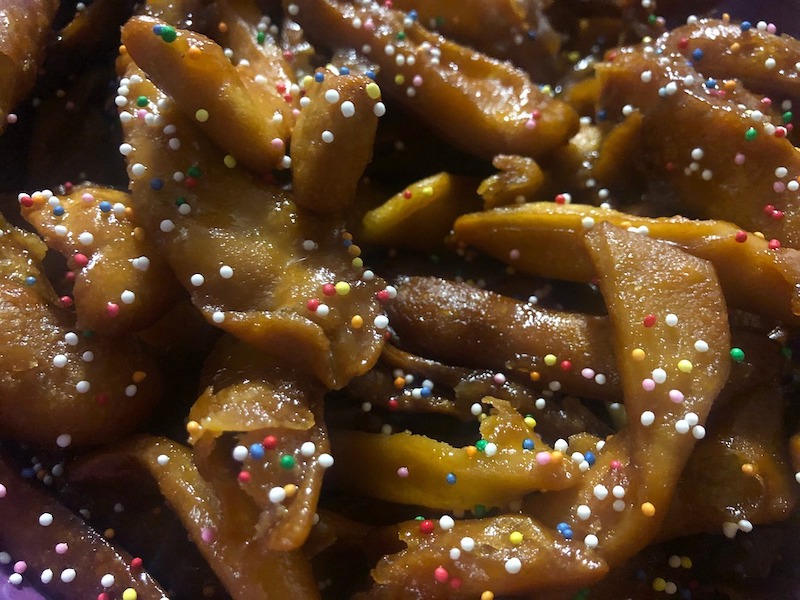
4. Rosquillas
Rosquillas are the popular Spanish Easter donuts. They are prepared with fresh orange juice and lemon rid.
These sweet, ring-shaped pastries come in various flavors—some are glazed with sugar, while others are flavored with anise or covered in a dusting of cinnamon. Rosquillas are a little piece of Spanish culinary heritage.
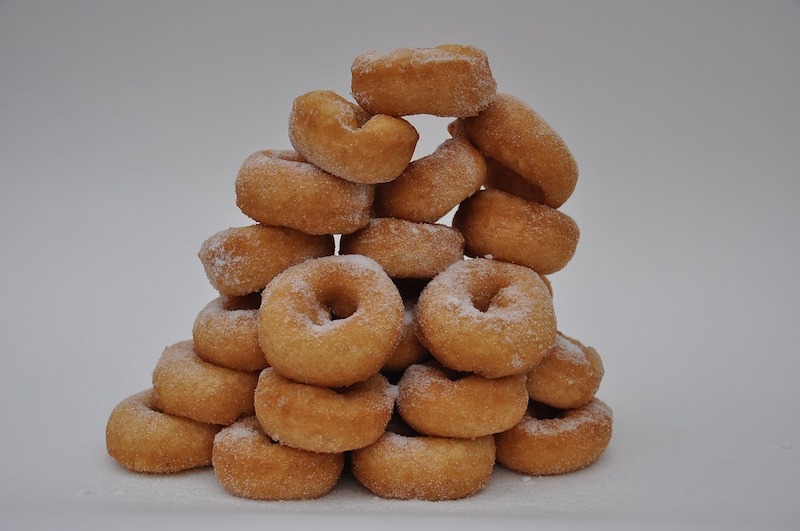
5. Sopa de Ajo
Sopa de Ajo (Spanish garlic soup) is traditionally eaten in Spanish homes on Easter Sunday. Spanish garlic soup is made with garlic, chicken broth, pepper, and a poached egg in the center of the soup.
This hearty garlic soup, often made with rustic bread, paprika, and a touch of poached egg, is the perfect balance of bold flavors and simplicity. Sopa de Ajo is a dish that speaks to the heart of Spanish home cooking—nourishing, satisfying, and full of tradition. Whether served as a starter or enjoyed on a chilly spring evening, sopa de ajo brings a sense of comfort and connection to the season
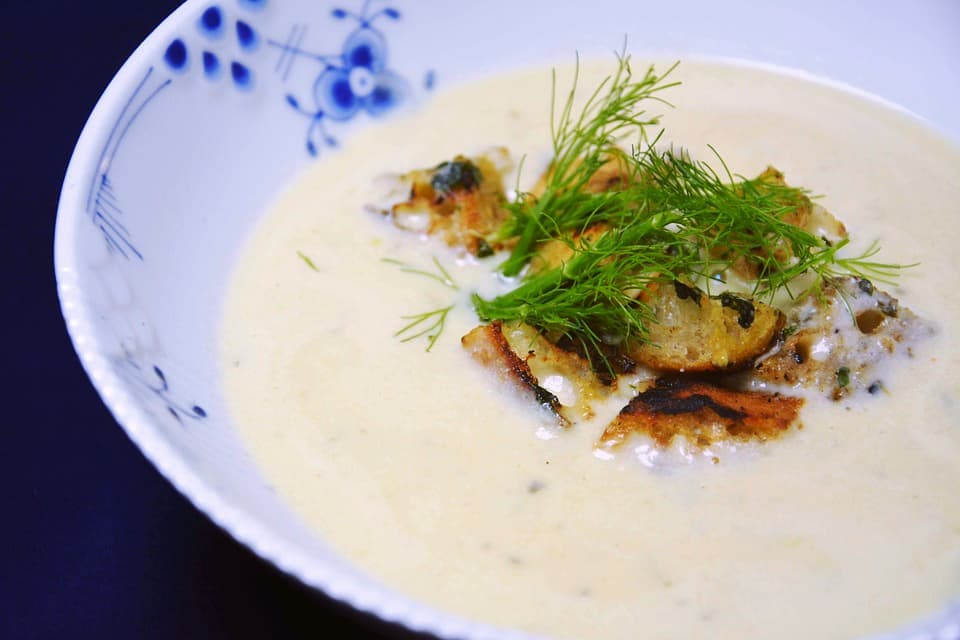
6. Mona de Pascua
Mona de Pascua is a traditional ring-shaped Easter cake, prepared typically in Valencia and Catalonia. It is a colorful cake made of marzipan with boiled eggs or chocolate eggs on the top.
Mona de Pascua is the showstopper of Easter celebrations in Spain, a sweet, festive cake that is as much about tradition as it is about flavor. Typically adorned with colorful icing, chocolate eggs, and sometimes even little toys, this delicious cake is a symbol of joy and renewal. In many regions, it’s shared with family and friends, making it the perfect centerpiece for an Easter gathering.
7. Flores de Semana Santa
Flores de Semana Santa – The ‘Holy Week fried flowers’ are sweet and crunchy cookies found in Spanish homes and bakeries across Spain.
With their light, airy texture and beautiful design, they’re a true reflection of the festive spirit that fills the air during Holy Week. Whether you’re in Seville or Madrid, enjoying flores de Semana Santa is like taking a bite of Spanish history, where every petal of sweetness brings a taste of celebration.
8. Espinacas con garbanzos
Espinacas con garbanzos – Spanish-style chickpea and spinach stew from Seville traditionally eaten at Easter time in Spain.
Espinacas con garbanzos is a classic Spanish dish that perfectly captures the spirit of Easter. This comforting combination of tender spinach and hearty chickpeas is not only a flavorful vegetarian delight but also a symbol of the season’s simplicity and warmth. Often seasoned with garlic, cumin, and a dash of paprika, it’s a dish that brings out the best in humble ingredients. During Easter, espinacas con garbanzos provides a nourishing, soul-satisfying meal, reminding us of the joy found in sharing wholesome food with loved ones.
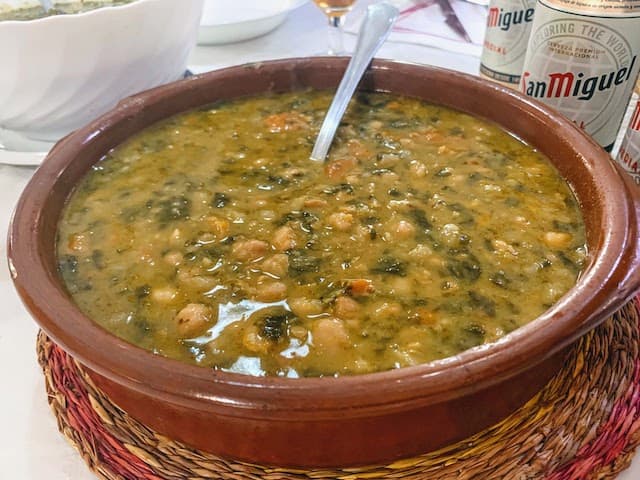
9. Potaje de Vigilia
Potaje de Vigilia – is a traditional Spanish stew of chickpeas, spinach, garlic, and salted cod eaten on ‘Viernes Santo’ (Good Friday).
It is the perfect dish to warm both the heart and soul during Easter in Spain. This hearty is a dish full of history, often enjoyed on Good Friday as part of the Lenten fast, but its rich flavors make it a beloved part of the Easter celebrations.
10. Bacalao al pil-pil
Bacalao al pil-pil – Cod in Pil-Pil Sauce is a traditional Basque dish eaten during Lent in the Basque Country, northern Spain.
Bacalao al pil-pil is a true Spanish delicacy that shines during Easter celebrations. This mouthwatering dish features salted cod cooked to perfection in a velvety sauce made with garlic, olive oil, and a touch of chili. The magic of bacalao al pil-pil lies in its rich, silky texture, where the sauce is gently emulsified by the cod’s natural oils, creating a harmonious burst of flavor with every bite. It’s a dish that not only brings tradition to the table but also embodies the essence of Spanish cuisine—simple, yet utterly delicious.
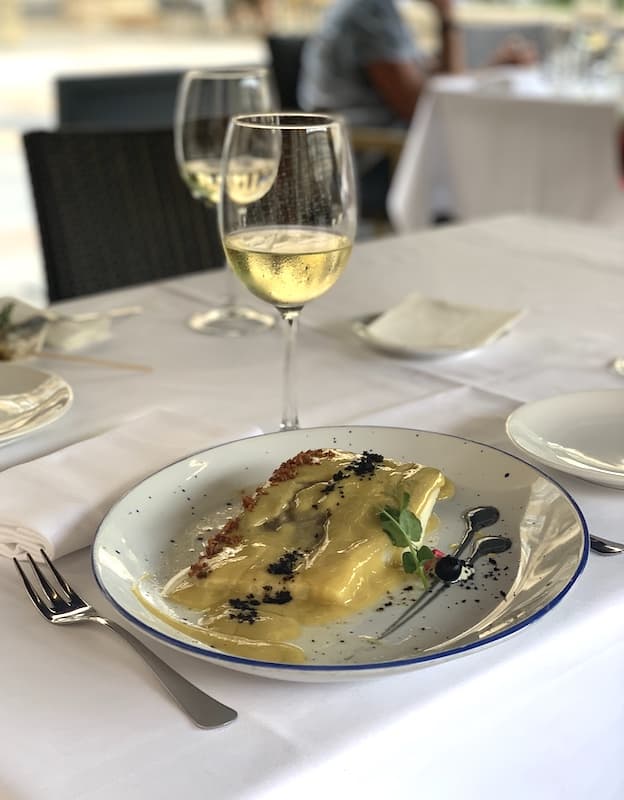
11. Huevos de Pascua
Huevos de Pascua or huevos de chocolate – colorfully decorated boiled eggs or chocolate eggs given as gifts to children on Easter.
The Easter eggs are a sweet, colorful symbol of renewal and celebration in Spain during Easter. These delicious chocolate eggs, often filled with creamy surprises or decorated in vibrant hues, bring joy to both kids and adults alike. Whether they’re hidden for an exciting Easter egg hunt or shared as a thoughtful gift, huevos de Pascua capture the magic of the season. Every bite is a reminder of new beginnings and the sweetness of life, making them a perfect way to celebrate this time of year.
RELATED READ:
Best things to do in Seville
Best things to do in Malaga
The ultimate Andalucia road trip itinerary
Best destinations in Spain for foodies
Best cities in Spain to visit
Where is Semana Santa celebrated in Spain?
Semana Santa in Spain is celebrated throughout the country. But the most famous Semana Santa celebrations are in Andalucia and Castilla y Leon.
Holy Week celebrations in Andalucia tend to be more glamorous, and Holy Week celebrations in Castile and Leon are more solemn.
However, the most famous Spanish Semana Santa parades are probably in Seville and Malaga in Andalucia.
What does Semana Santa mean?
Semana Santa means Holy Week. Holy Week is the week that precedes Easter and the last week of Lent. Holy Week ends with Easter Sunday.
What is Semana Santa in Spain?
Semanta Semana is the most important Christian week in Spain. Semana Santa starts with Palm Sunday, called Domingo de Ramos in Spain. Palm Sunday commemorates the day when Jesus arrived in Jerusalem. Semana Santa ends with Easter Sunday or Lunes de Pascua in Spanish. Semana Santa parades in Spain commemorate the passion, death, and resurrection of Jesus Christ. The most dramatic Semana Santa parades in Spain happen on Maundy Thursday (Jueves Santo) and Good Friday (Viernes Santo).
How do you say Easter Sunday in Spanish?
Easter Sunday is Lunes de Pascua in Spanish.
How does Spain celebrate Easter?
Easter in Spain is celebrated among families. But Holy Week, the week that proceeds Easter, is celebrated by spectacular Holy Week parades that take place in the streets of many Spanish cities. The most spectacular Semana Santa parades in Spain are on Maundy Thursday (Jueves Santo) and Good Friday (Viernes Santo).
- The Ultimate Florence to Pisa Day Trip Guide: Expert Tips & Itinerary for a Flawless Trip! - March 29, 2025
- The Ultimate Cinque Terre from Florence Day Trip: A Complete Itinerary and Travel Tips You Can’t Miss! - March 29, 2025
- The Ultimate Rome to Florence Day Trip: The Perfect Itinerary, Tours and Expert Tips! - March 25, 2025

